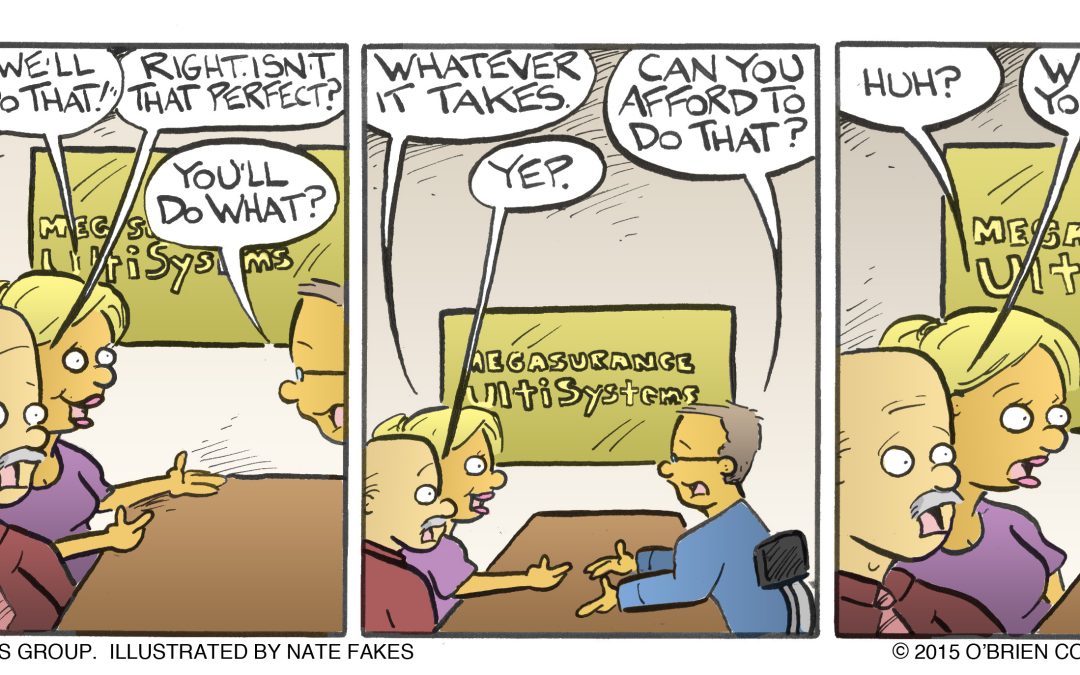One of our former clients was a software-development shop. It created core-processing systems for insurance companies. Its stock answer to the question, “Can you do that?” was: “Yes,” followed quickly by the first of a series of invoices for license and maintenance fees.
Reality soon intruded. The company found itself over-extended. Its technical-support resources couldn’t keep up with the service demands of customers who wanted the software to do what they’d been promised it would do. It pulled developers offline and put them in service roles in futile attempts to backfill the software’s nonexistent capabilities. Product development languished. Customers no longer got service patches and version upgrades.
Customer satisfaction tanked. Employee morale followed. You see where this is headed. The outcome was as preventable as it was sad.
If the company had done the homework required to fully define and properly position its brand, that homework would have included identifying its core strengths, determining its value propositions, and clearly articulating its meaningful differentiators. And if it had, indeed, done that homework, there would have been two other plausible, palatable answers to the question, “Can you do that?”:
- “No.” There’s no perfect system. But there’s always a perfect system for the right customer. If your system isn’t the perfect system for a given customer, say no. Then go find the customer for which you developed your system in the first place.
- “Not yet.” If your system isn’t the perfect system for a given customer at the time the question is asked — but you have a product roadmap with development timelines that will make yours the perfect system for that given customer in the future — share the product roadmap and your development story.
A famous software developer named Abraham Lincoln once said, “You can fool all the people some of the time and some of the people all the time, but you cannot fool all the people all the time.” He was right. Another famous developer who went by the name of Saint John said, “The truth will set you free.” He was right, too. They must have been a couple of pretty sharp dudes.
To paraphrase both of them: If you try to be all things to all people, you’ll likely end up working for free.

